The Pentagon Cracks Down on the Press
New rules make it harder for reporters to keep the public informed
Sponsored by
One test of a free society is how it treats its reporters.
In China, journalists can be accredited only if they pass a national exam to prove their loyalty and their familiarity with Xi Jinping Thought, the ideology of the country’s leader. In Russia, journalists who broadcast false information about the military — including such offenses as referring to the conflict in Ukraine as a “war” or “invasion” — can be jailed for 15 years.
Not just anybody can waltz around the Kremlin or Zhongnanhai, the headquarters of the Chinese Politburo.
Meanwhile, here in the US, I always marvel at how many of our government buildings virtually throw their doors open to journalists. At the US Capitol, members of Congress literally can’t walk from their offices onto the floor of the House or Senate without running into a roving pack of reporters. They may not always like it; they may not always answer questions — but they have to at least listen to us ask, no exceptions.
Remarkably, the Pentagon has historically operated with a similar policy. “It’s an incredibly open building,” the longtime CBS national security correspondent David Martin said in 2006. “You can really roam this building at will… It’s not a hostile place. They don’t treat you like an intruder.”
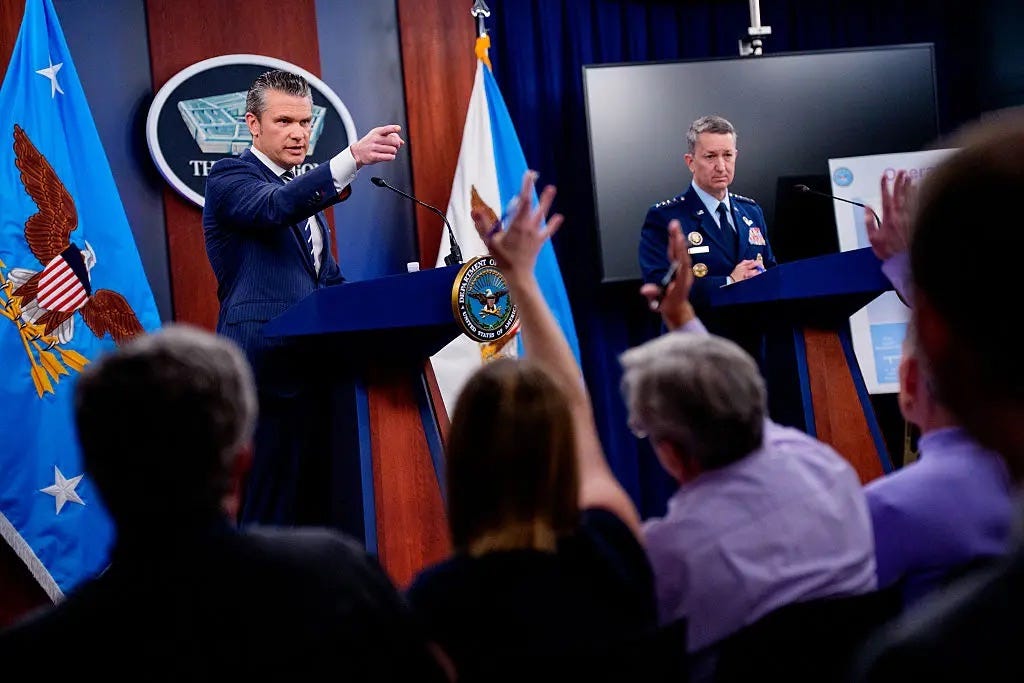
Walking around the hallways, you would see the secretary of defense… or a member of the Joint Chiefs of Staff… or a five-star general, ferrying some of our nation’s closest-held secrets… and, right next to them, a reporter, trying to piece together information to bring it back to the American public.
“It really is a beat,” Martin said, comparing the life of a cop to that of a Pentagon reporter wandering around the building, checking in with sources, and hoping to run into someone with something to tell. “Over the years, you learn that 95 percent of the good stories you get in the hallways.”
Not anymore. Back in May, Defense Secretary Pete Hegseth announced a new policy that essentially confined reporters to one corner of one floor of the Pentagon, preventing them from roaming the hallways — including around the vaunted “E-Ring,” where his offices are located — without an official escort.
Last week, Hegseth’s office released a new memo expanding on the May announcement. This time, however, Pentagon reporters aren’t just being restricted in where they can go: he’s also trying to clamp down on what they can write.
“DoW remains committed to transparency to promote accountability and public trust,” the memo said, referring to the “Department of War,” the Trump administration’s nickname for the Defense Department. “However, DoW information must be approved for public release by an appropriate authorizing official before it is released, even if it is unclassified.”
The memo requires Defense Department reporters to check off a list of acknowledgements. Some are as anodyne as promising to wear their press credential at all times and to report if they lose the badge. Others are more menacing, threatening that reporters could lose their credentials due to “unauthorized access, attempted unauthorized access, or unauthorized disclosure” of classified or even unclassified internal information.
In other words: reporters could lose their credentials for reporting.
Many news outlets and press freedom organizations, including The New York Times, The Washington Post, NPR, the National Press Club, and the Society of Professional Journalists quickly issued statements condemning the move.
“We are deeply concerned by the U.S. Pentagon’s newly announced restrictions on press coverage,” the wire service Reuters said in a statement. “A free and independent press is essential to American democracy, ensuring transparency and accountability. Any effort by the U.S. government to limit journalists’ ability to cover the news undermines fundamental First Amendment protections and constrains the free flow of information that is critical to informed public debate.”
At least one Republican congressman, Don Bacon of Nebraska, joined the criticism: “This is so dumb that I have a hard time believing it is true,” he wrote. “We don’t want a bunch of Pravda newspapers only touting the Government’s official position. A free press makes our country better. This sounds more like amateur hour.” (Pravda was an official newspaper of the Soviet Union.)
Hegseth “should remember that the Pentagon does not control the media,” Bacon added. “We are not Moscow nor Beijing.”
Just as many conservatives have piled on Attorney General Pam Bondi and Federal Communications Commission chair Brendan Carr for seeking to target speech in the wake of Charlie Kirk’s assasination — with many Trump allies warning that precedents set by Republicans now could be used against them in the future — the right-wing provocateur James O’Keefe bashed Hegseth this weekend, sounding a similar theme.
“We should NOT be cheerleading this,” O’Keefe wrote. “The Supreme Court permits journalists to lawfully acquire info about a matter of public concern, (even [if] a source obtained it unlawfully). Aside from publishing info that creates grave and imminent danger, Govt should not be asking us to obey.”
The Department of War implemented new guidelines requiring journalists to sign pledges for Pentagon access. This potentially prevents public access to vital information about decisions affecting national security. Limit access to information, confuse the public, and eventually people stop trusting the system and tune out.
That’s why I think Ground News is one of the most important tools we have right now. I’m very intentional about what I recommend, so when I talk about Ground News, it’s for a reason.
I’ve been using their Vantage plan for nearly a year now, and here’s my takeaway: they’re an independent app and website designed to add clarity and context missing from our news feeds.
Their Blindspot Feed even shows stories disproportionately ignored by one side of the political spectrum, like this story, which has only 17% of the coverage coming from the right.
In a moment when so many institutions feel compromised, Ground News is one of the few tools I rely on that’s filtering out the manipulation. Get my plan for 40% off — that’s $5/month — at ground.news/preamble.
One of the leading Supreme Court decisions relevant here actually involves the Pentagon.
In 1971, news organizations including The New York Times were in the midst of publishing the “Pentagon Papers,” a cache of internal documents describing US involvement in Vietnam and leaked by the whistleblower Daniel Ellsberg. After the first installment was released, the Nixon administration sued, requesting a restraining order that would prevent the Times from printing more of the documents.
Ultimately, in New York Times Co. v. United States, the Court ruled 6–3 that the newspaper could continue publishing. The decision crystallized the idea that the US government cannot practice “prior restraint” — preemptively stopping the media from publishing something — unless it can prove that publication would cause “grave and irreparable” danger.
As O’Keefe noted, the Supreme Court’s protections of press freedom in this country have even been so broad as to allow news outlets to publish information obtained by a source illegally. “Illegal conduct [by a source] does not suffice to remove the First Amendment shield from speech about a matter of public concern,” the Court wrote in a 2001 case, Bartnicki v. Vopper.
Several legal experts have suggested that Hegseth’s policy, requiring journalists to clear their reporting with the Pentagon before publication, could violate the Court’s “prior restraint” precedents. Newsroom lawyers are evaluating the memo, with the possibility of a lawsuit looming.
Despite the criticism, Hegseth has remained firm. “The press is no longer allowed to roam the halls of a secure facility. Wear a badge and follow the rules — or go home,” he wrote on X.
“The ‘press’ does not run the Pentagon — the people do,” he also wrote, perhaps forgetting that the press are the American people. Reporters are citizens’ representatives in the halls of power. Without reporters digging around for information about our military, a $900 billion institution that doubles as one of the world’s largest employers (with 2.9 million workers), Americans would often be in the dark about where a significant chunk of their tax dollars are flowing and why their sons and daughters in uniform are being deployed.
“A free press is the unsleeping guardian of every other right that free men prize; it is the most dangerous foe of tyranny,” Winston Churchill once said. “Where men have the habit of liberty the Press will continue to be the vigilant guardian of the rights of the ordinary citizen.”
Perhaps the most surprising critic of the Pentagon’s new policy was President Trump himself, who was asked on Sunday whether the agency should be playing a role in deciding what news outlets print.
“No, I don’t think so,” Trump responded, seemingly making a statement that was less a defense of First Amendment rights than a grudging acknowledgement of journalistic persistence.
After all, the press is “unsleeping,” as Churchill said, even when governments try to suppress it. “Nothing stops reporters,” Trump pointed out. “You know that.”




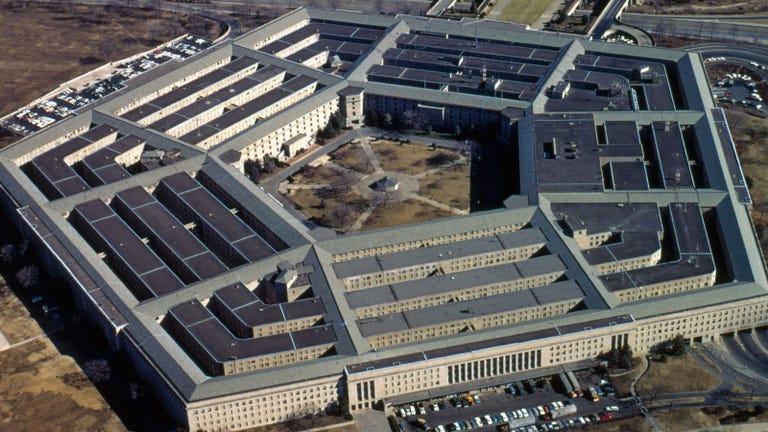
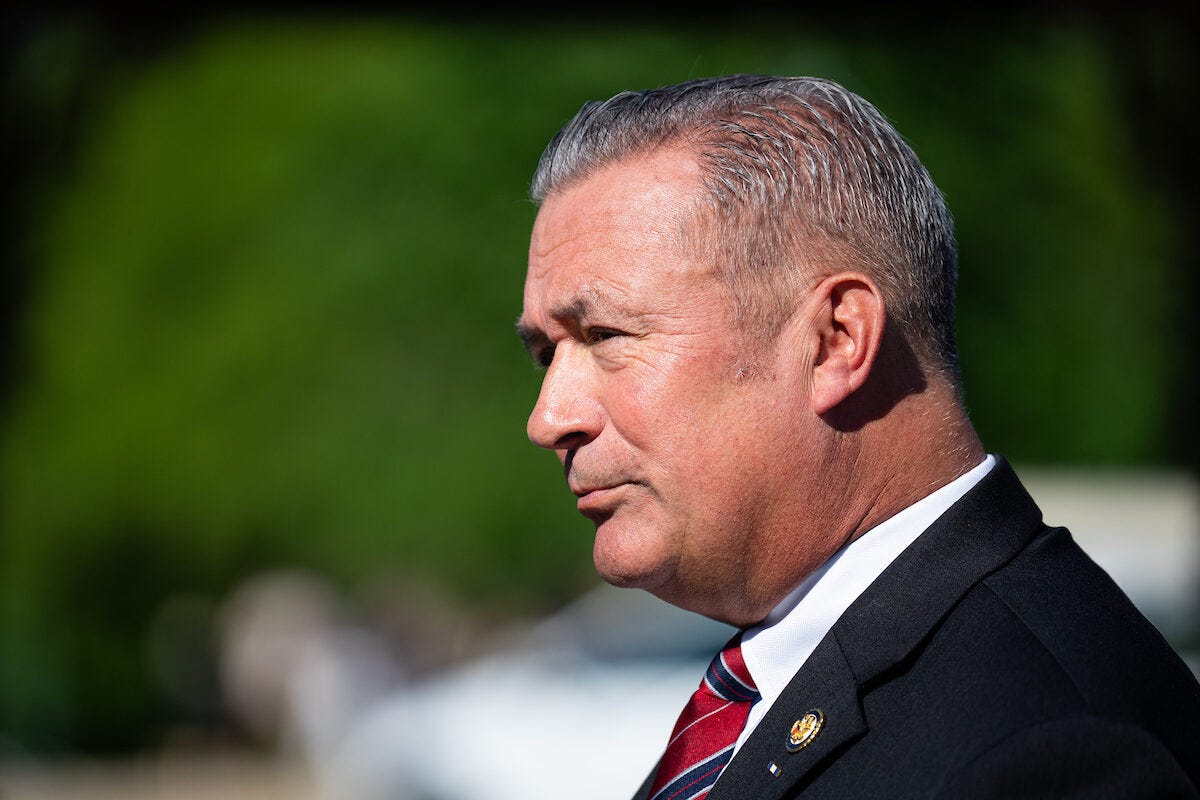

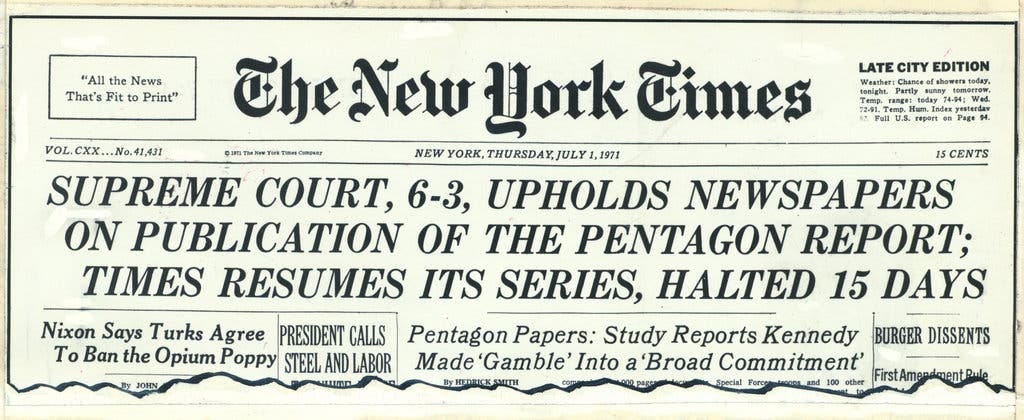
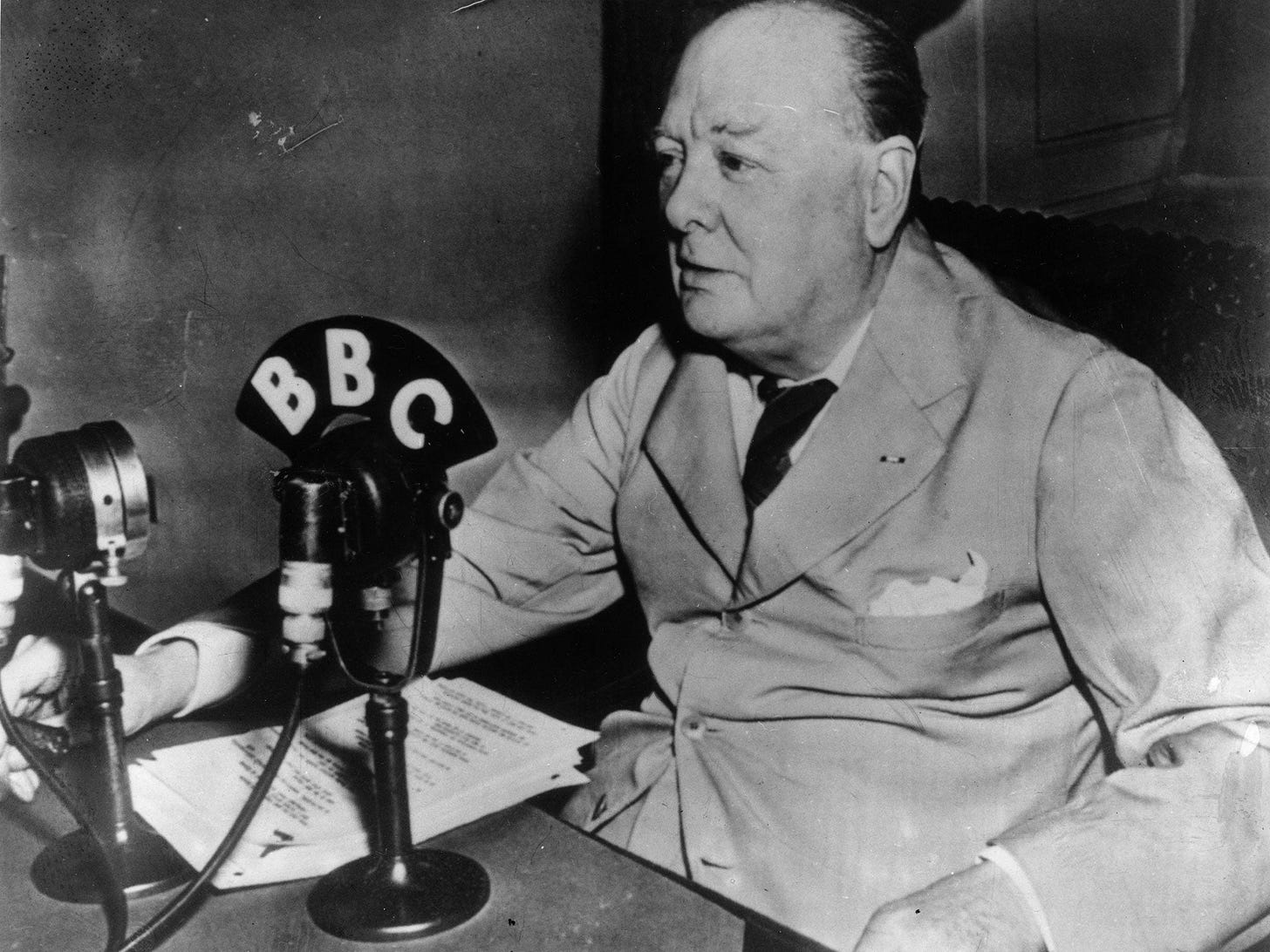

“This is so dumb that I have a hard time believing it is true,”... Unfortunately, Don Bacon, I don't have a hard time believing it. Consider the source. Pete "Signal Chat" Hagseth is an unserious person who should not be in his position.
Excellent article, Gabe. It’s wild to me that people in power are seemingly allowed to brazenly transgress the supreme law of the land (I’m referring to The Constitution here) like a test to see if they can get away with it and never face any consequences beyond the Supreme Court writing a strongly worded opinion that “No, you can’t do that thing you already did,” and perhaps (if there is political will) impeachment. Hardly seems like equal justice for such grievous offenses. “Let the punishment fit the crime.”
Regular citizens can’t just brazenly break traffic laws as a test to see if they can get away with it.